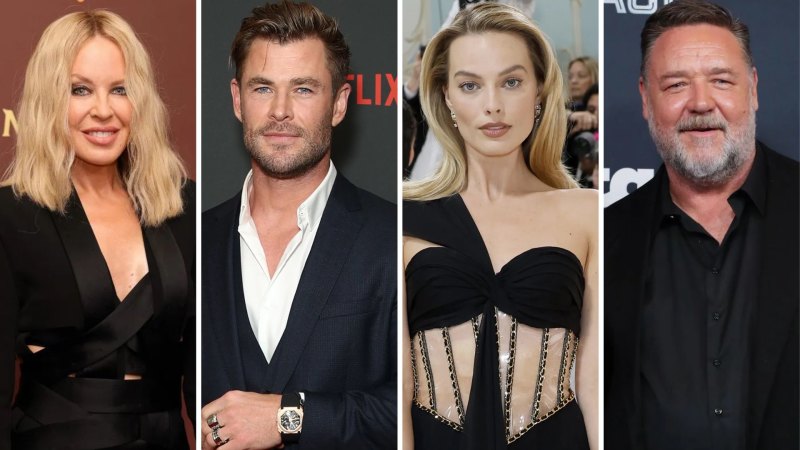Save articles for later
Add articles to your saved list and come back to them any time.
In the lead-up to the 2017 same-sex marriage plebiscite, Australia’s own Hollywood superstar Chris Hemsworth took to Instagram to encourage his millions of followers to vote Yes to marriage equality.
“Dear open-minded, free-speaking, laid-back, life-loving Aussies,” wrote Hemsworth. “Marriage is about love and commitment, and in a country based on equal citizenship, it should be available to everyone! Vote now for marriage equality.”
Hemsworth was far from the only high-profile Australian to take this position, with Margot Robbie, Russell Crowe, Hugh Jackman, Nicole Kidman and Kylie Minogue all joining him in publicly campaigning for the Yes vote.
At the time, Crowe tweeted: “Hey Australia, I love you. Thanks for being you. Please send a clear message with your vote and your voice.”
Six years later, Australia is on the precipice of another crucial public vote on a key social issue: the enshrinement of an Indigenous Voice to parliament in the constitution. But this time, the message coming from our most recognisable cultural exports is much less clear.
Just days out from the referendum, many of the country’s biggest celebrity names have remained conspicuously absent from the debate, with Hemsworth, Robbie, Minogue, Crowe and Kidman yet to voice their thoughts on the Voice.
Kylie Minogue, Chris Hemsworth, Margot Robbie and Russell Crowe all publicly supported the marriage plebiscite, but have stayed silent on the Voice to Parliament.Credit: Getty
Instead, the heavy lifting has been left to our Indigenous stars – Adam Briggs and Cathy Freeman have been front and centre – or a collection of famous-in-Australia celebrities, including footballer Nathan Cleary, comedian Tom Gleeson, TV host Hamish Blake and long-time First Nations supporter Paul Kelly.
The question is, why? How come a group of high-profile people with a track record of using their platforms to speak up on issues that matter has suddenly hit mute? Perhaps the answer can be found in the response to the people who have spoken up.
Last week, long-time Hemsworth collaborator Taika Waititi became one of the most visible celebrities to join the Yes camp. The New Zealand filmmaker shared the Yes campaign’s viral Far Enough video starring and produced by Indigenous musician Adam Briggs on his Instagram. Waititi paired it with a caption explaining why people should vote yes.
“The aim is to give Aboriginal and Torres Strait Island people a voice in parliament, so they can weigh in on issues that affect their lives,” wrote Waititi. “Simple as that.”
Waititi’s post caught the attention of Aquaman star Jason Momoa, who was born in Hawaii and is of Polynesian descent, who then shared the video with his 17 million followers.
Spend five minutes in the comments section of either Waititi or Momoa’s posts, and you’ll soon see a recurring theme: accusations of out-of-touch celebrities lecturing the public.
Australian actress Angourie Rice, known for her roles in Spider-Man and Senior Year, faced a similar chorus of criticism after she shared a selfie with a Yes badge and said she supported the Voice to encourage “listening, recognition and a better future”.
There were comments of support, but the bad far outweighed the good. Rice was told to “stay out of politics and don’t be a pawn”. Others warned her she risked “losing support for something you know very little about.” Meanwhile, actress and comedian Celeste Barber posted her support for the Yes vote on Instagram but opted to turn comments off.
Celebrity activism has long raised eyebrows, but in an increasingly fractured world, being painted as a preachy elite can damage not only your own brand but also potentially the cause you’re hoping to spotlight.
Take Ray Martin, one of Australia’s most respected journalists and a man people from both sides of politics would likely have a beer with.
During an appearance at a Yes rally, Martin called voters convinced by the No campaign’s “If you don’t know, vote No” slogan “d—heads and dinosaurs”. He stood by the comments on an appearance on A Current Affair, and a few days later Peter Dutton appeared on The Today Show criticise Martin.
“I think the arrogance of elites and celebrities like Ray Martin is that he has no idea how much damage he’s done to the Yes case,” said Dutton. “It just makes people more reluctant.”
There’s no denying that the Voice to Parliament is an issue fewer Australians understand, compared to the marriage equality plebiscite. The plebiscite cruised to victory on a groundswell of goodwill, built up over decades of campaigning on the issue. The Voice has steadily become more divisive, thanks to the lack of bipartisanship and a well-resourced No campaign. As a result, the polls have shifted, and now a strong majority of Australians appear to be opposed.
When you’re in the business of wanting people to like you, buy tickets to your film, or pay to go to your show, the risk you run by speaking out is no longer worth the reward. For someone like Chris Hemsworth, whose Instagram following is twice Australia’s population, picking the “right” side has become harder to predict.
And if you don’t know? Well, don’t say anything at all.
Robbie, Hemsworth, Kidman, Minogue and Crowe were all approached for comment.
Find more of the author’s work here. Email him at [email protected] or follow him on Instagram at @thomasalexandermitchell and on Twitter @_thmitchell.
Find out the next TV, streaming series and movies to add to your must-sees. Get The Watchlist delivered every Thursday.
Most Viewed in Culture
From our partners
Source: Read Full Article

